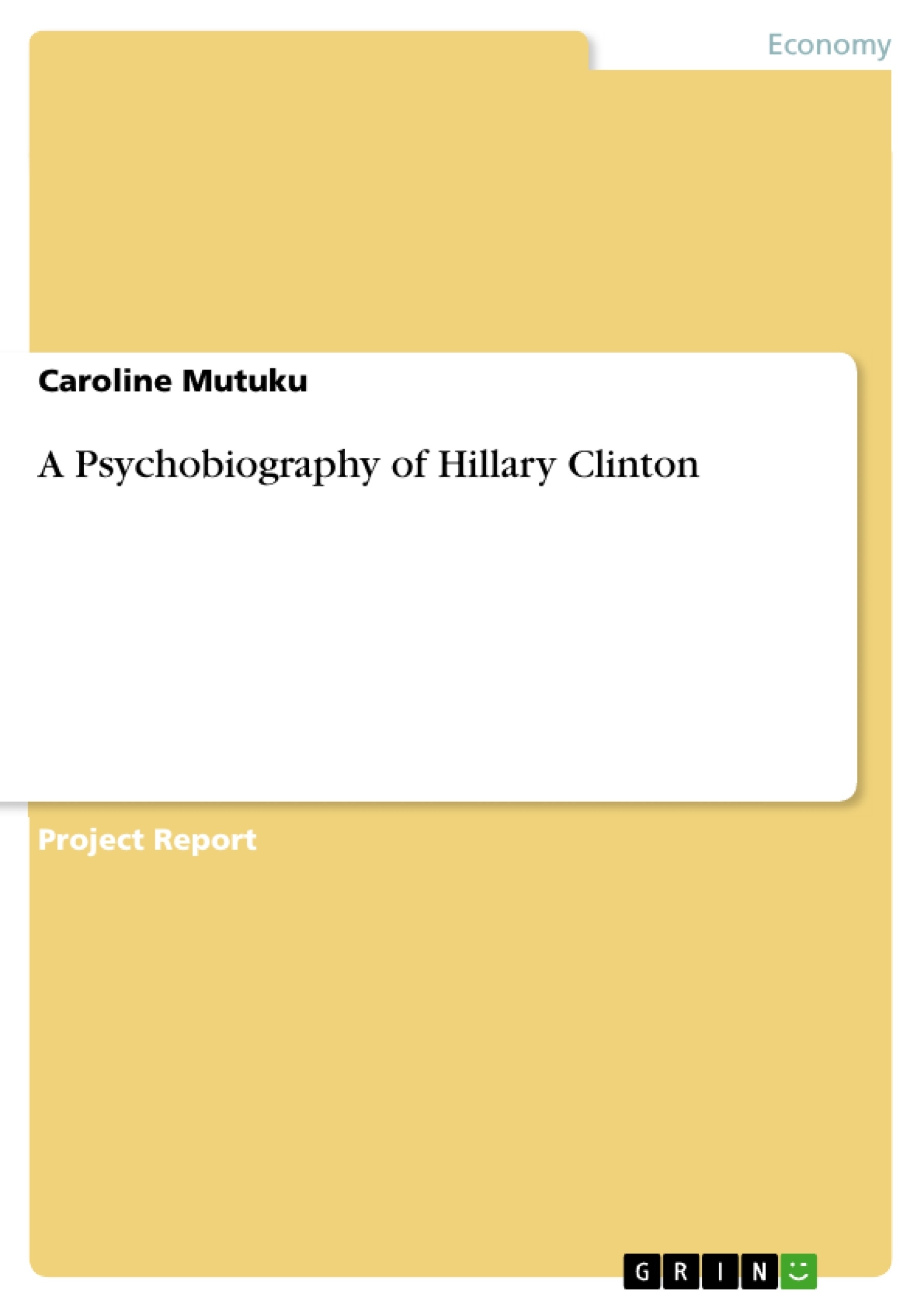This paper provides a comprehensive psychobiography of Hillary Clinton. She is one of the America’s most influential women and she has excelled both in politics and her legal career.
Hillary Clinton was born on October 26, 1947 in Chicago. She was the first born of Dorothy Emma Rodham and Hugh Ellsworth Rodham, a Methodist family. Hillary was the eldest sibling of this couple and her other two siblings are Anthony Rodham and Hugh E. Rodham, Jr. She grew up in Illinois since the age of three after her parents relocated from Chicago. After completing her high school in 1965, Hillary enrolled at the Wellesley College to pursue political science. She then joined Yale Law School in 1970 where she got her Juris Doctor degree in 1973. In 1975, Hillary got married to Bill Clinton at the age of 27 years. Thereafter, she bore Chelsea Victoria Clinton in 1980, the only daughter for this couple. She became the United States’ First Lady after the election of Bill Clinton as the US president in 1993. Since then, she has served in various high political positions until recently when attempted to become the first US woman president, but she lost to President Donald Trump.
This analysis employs the Five Factor Model, the Myers-Briggs theory and the psychoanalytic theory to describe Hillary Clinton’s psychobiography.
Inhaltsverzeichnis (Table of Contents)
- Introduction
- Rationale for Selecting Hillary Clinton and Appropriateness of Personality Theories
- The Five Factor Profile of Hillary Clinton
- The Myers-Briggs Profile of Hillary Clinton
- The Psychoanalytic Theory
- Conclusion
- References
Zielsetzung und Themenschwerpunkte (Objectives and Key Themes)
This paper provides a comprehensive psychobiography of Hillary Clinton, analyzing her personality traits using the Five Factor Model, the Myers-Briggs theory, and psychoanalytic theory. The paper explores how these theories help to understand Hillary Clinton's public acts and the underlying motives behind them.
- Hillary Clinton's personality traits and how they have shaped her public career.
- An examination of how the Five Factor Model, Myers-Briggs theory, and psychoanalytic theory can be applied to understand Hillary Clinton's personality.
- The challenges and limitations of applying psychobiography to understand a complex individual like Hillary Clinton.
- The impact of Hillary Clinton's personal life on her political career.
- The role of gender and societal expectations in shaping Hillary Clinton's public image.
Zusammenfassung der Kapitel (Chapter Summaries)
- Introduction: This chapter introduces the concept of psychobiography and outlines the paper's objective of providing a comprehensive analysis of Hillary Clinton's personality. It also provides a brief overview of Hillary Clinton's life and career.
- Rationale for Selecting Hillary Clinton and Appropriateness of Personality Theories: This chapter explains why Hillary Clinton was chosen for this analysis, highlighting her significant public presence and the relevance of the selected personality theories in providing a comprehensive understanding of her character. It also discusses the importance of avoiding pitfalls in psychoanalysis, such as the absence of self-analysis, corroboration, and distortion.
- The Five Factor Profile of Hillary Clinton: This chapter delves into the Five Factor Model, a scientifically derived approach for analyzing personality traits. It explains the five key features of the model: openness, conscientiousness, extraversion, neuroticism, and agreeableness. The chapter then examines how each of these features can be applied to understanding Hillary Clinton's personality, drawing on examples from her life and career.
Schlüsselwörter (Keywords)
This psychobiography examines Hillary Clinton's personality through the lens of the Five Factor Model, the Myers-Briggs theory, and psychoanalytic theory. It delves into the complexities of her personality and how her traits have influenced her public life, particularly her political career. Key themes include openness to experience, conscientiousness, extraversion, neuroticism, agreeableness, psychobiography, personality analysis, political leadership, and gender dynamics.
- Quote paper
- Caroline Mutuku (Author), 2018, A Psychobiography of Hillary Clinton, Munich, GRIN Verlag, https://www.grin.com/document/432465




